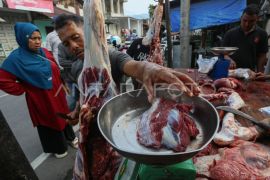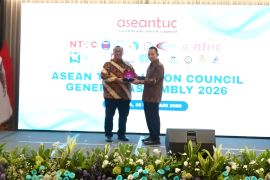RIO DE JANEIRO, Jan. 31, 2013 /PRNewswire/ -- A rural credit law in the Brazilian Amazon Biome is helping reduce deforestation according to a new study by Climate Policy Initiative, Does Credit Affect Deforestation? Evidence from a Rural Credit Policy in the Brazilian Amazon.
In 2008, Brazil introduced Resolution 3,545. The law hinged credit, which is an important source of financing for rural producers, on proof of compliance with environmental regulations. Climate Policy Initiative's study estimates that approximately BRL 2.9 billion (USD 1.4 billion) in rural credit was not contracted in the 2008 through 2011 period due to restrictions imposed by Resolution 3,545. This reduction in credit prevented over 2,700 km2 of forest area from being cleared, which represents a 15% decrease in deforestation during the period.
CPI's analysis also indicated that the resolution's impact on deforestation was only significant in municipalities where cattle ranching is the main economic activity, rather than crop production. This suggests that cattle ranchers are credit-constrained and responded more to changes in the availability of subsidized credit, or that crop framers may use the subsidies to intensify productivity instead of expand their production frontier. CPI also found that large producers were more affected than small producers, who had less stringent requirements and more exemptions.
"It's clear from our analysis that Brazil's rural credit policy is helping to reduce deforestation," said Juliano Assuncao, director of CPI Rio and professor at the Department of Economics at the Pontifical Catholic University of Rio de Janeiro (PUC-Rio). "We also see, however, that design and implementation details matter."
The deforestation rate in the Brazilian Amazon decreased sharply in the second half of the 2000s, falling from a peak of 27,000 km2 in 2004 to 5,000 km2 in 2011. In an earlier study, CPI Rio found that government conservation policies helped avoid approximately half of the deforestation that would have happened in the absence of such policies. Later this year, CPI Rio plans to analyze the effect of two other policies in Brazil including the strengthening of enforcement and monitoring operations, and the increase in protected land.
For more information, and to download the report, visit www.ClimatePolicyInitiative.org
Climate Policy Initiative (CPI) is a global policy effectiveness analysis and advisory organization. Its mission is to assess, diagnose, and support nations' efforts to achieve low-carbon growth. An independent, not-for-profit organization with long-term support from George Soros, CPI's headquarters are in San Francisco and regional offices are in Berlin, Beijing, Hyderabad, Rio de Janeiro, and Venice. In Rio, CPI partners with PUC-Rio, one of Brazil's leading universities.
Editor: PR Wire
Copyright © ANTARA 2013











